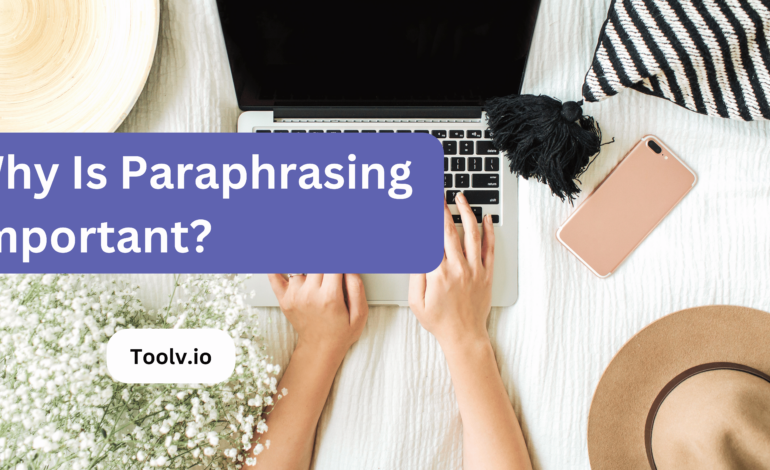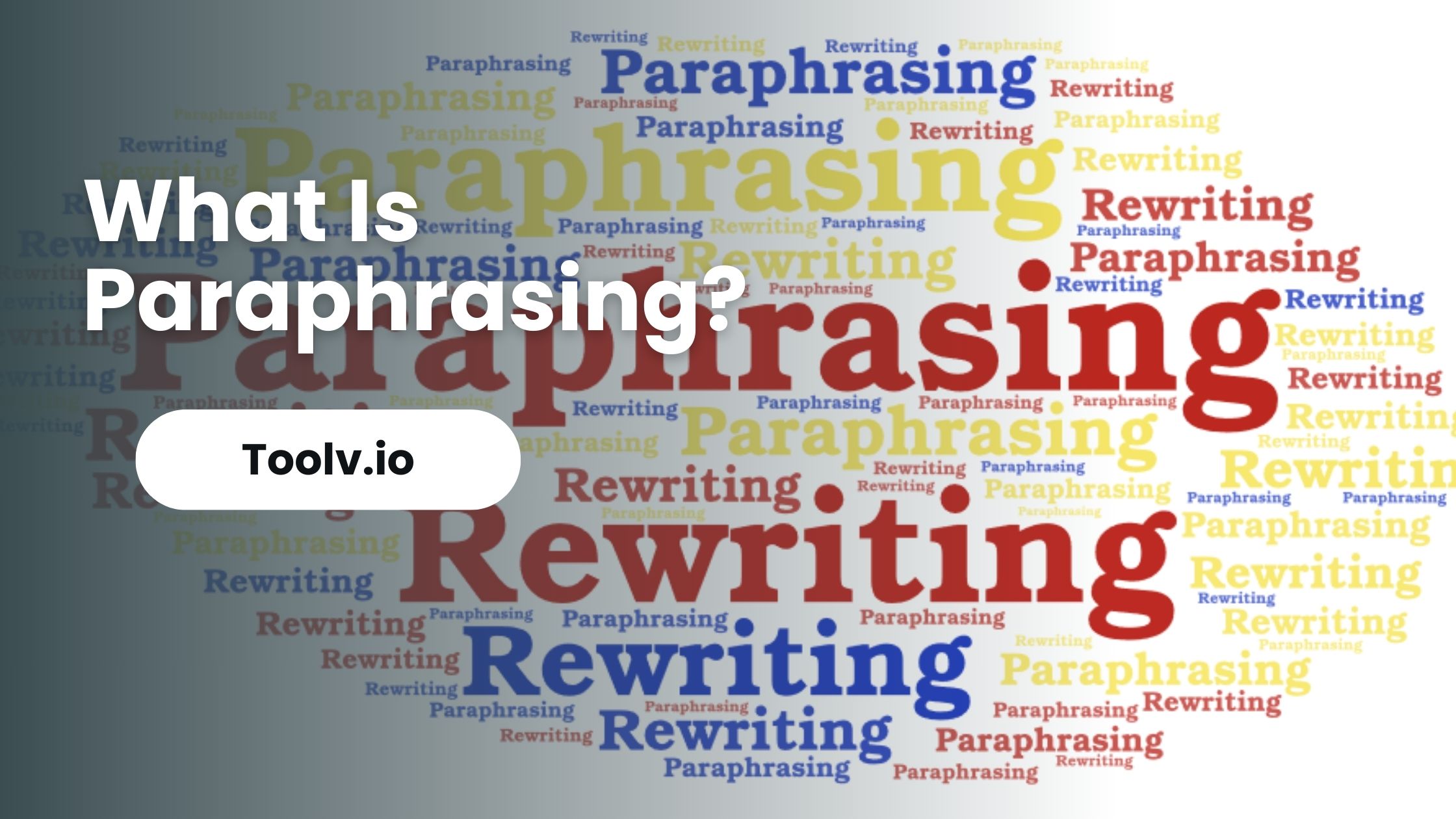Why Is Paraphrasing Important?

Paraphrasing is a key skill in writing and communication. It means taking someone else’s ideas and putting them in your own words. This is important because it shows you understand the idea and can explain it differently.
In this article, we will discuss the benefits of paraphrasing and how it can improve your writing. We will look at examples and tips to help you paraphrase effectively, making your work original and clear.
What Is Paraphrasing and Why Is Paraphrasing Important?
Paraphrasing is the act of rewriting someone else’s ideas in your own words. It’s important because it shows you understand the original text and can express its meaning differently. This skill is vital in writing and communication.
By paraphrasing, you avoid plagiarism, which is using someone else’s work without credit. It also helps you to remember and comprehend information better. Good paraphrasing involves more than just changing a few words.
It requires rethinking the original idea and presenting it freshly. This process helps in learning and retaining information. It’s useful in academics, work, and everyday life. Paraphrasing encourages critical thinking and deeper engagement with the material.
Why Is Paraphrasing Important for Effective Communication?
Paraphrasing is crucial for effective communication for several reasons. Firstly, it demonstrates understanding. When you paraphrase, you show that you’ve grasped the essence of what’s being said.
Paraphrasing enhances engagement. When you rephrase someone’s words, it encourages a deeper level of dialogue. It shows you’re actively listening and thinking about the topic, which can lead to more meaningful and productive conversations.
This active engagement fosters better relationships and more effective communication overall. This is essential in conversations and discussions, as it assures the other person that their message is being received accurately.
What Is One Benefit of Paraphrasing You Can?
Paraphrasing is a useful skill. It means rewriting someone else’s ideas in your own words. This helps you understand the material better. When you paraphrase, you have to think about what the original text means.
Another benefit of paraphrasing is that it helps you avoid plagiarism. Plagiarism is copying someone else’s work without giving credit. By paraphrasing, you show that you understand the content.
Paraphrasing also improves your writing skills. It forces you to use different words and sentence structures. This variety makes your writing more interesting. It also shows that you have a good grasp of the language.
Why Is Paraphrasing Beneficial to You as a Reader?
- Enhances Comprehension: When you paraphrase, you restate the information in your own words. This process requires a deeper level of understanding. It’s not just about reading the words; it’s about grasping the concepts behind them. As a result, paraphrasing can significantly improve your comprehension of the material.
- Improves Memory Retention: By paraphrasing, you actively engage with the text, which helps in better retention of the information. The act of rewording and reorganizing ideas requires mental effort, which reinforces memory. This means you’re more likely to remember what you’ve read.
- Develops Critical Thinking: Paraphrasing isn’t just about changing words. It’s about interpreting the text and understanding its nuances. This process encourages you to think critically about what you’re reading, question assumptions, and form your own interpretations. It’s an active reading strategy that fosters deeper thinking.
- Enhances Writing Skills: Regularly paraphrasing can also improve your writing skills. It helps you learn new vocabulary and different ways to structure sentences. This can make your own writing more varied and expressive.
- Avoids Plagiarism: When you’re using information from other sources, paraphrasing allows you to incorporate those ideas without plagiarizing. It shows that you understand the source material and can express it in your own unique way, while still giving proper credit to the original author.
FAQs
What is paraphrasing and why is it important?
Paraphrasing is the practice of restating a text or passage in your own words. It’s important because it demonstrates your understanding of the source material, allows you to maintain the original meaning while avoiding plagiarism, and helps in tailoring the information to your audience’s comprehension level.
How does paraphrasing differ from summarizing?
Paraphrasing involves rewording a specific text or passage, keeping all the key points intact, whereas summarizing entails condensing the main ideas of a larger text into a brief overview.
Can paraphrasing improve my writing skills?
Yes, paraphrasing can significantly improve your writing skills. It encourages you to understand and process the information deeply, enhances your vocabulary, and helps you to express ideas in different ways, thereby improving your overall communication and writing abilities.
Is paraphrasing necessary for academic writing?
Absolutely. In academic writing, paraphrasing is crucial for presenting research and ideas while avoiding plagiarism. It allows you to integrate evidence and support from various sources into your work, showing your understanding and ability to engage critically with the material.
Conclusion
Paraphrasing is key for effective communication. It helps understand and share ideas in new ways, ensuring clarity and originality. This skill is essential in writing and learning.
Toolv.io’s paraphrasing tool stands out. It offers a simple way to rephrase text, maintaining the original meaning. This tool is user-friendly, making it great for anyone needing to refine their message.





